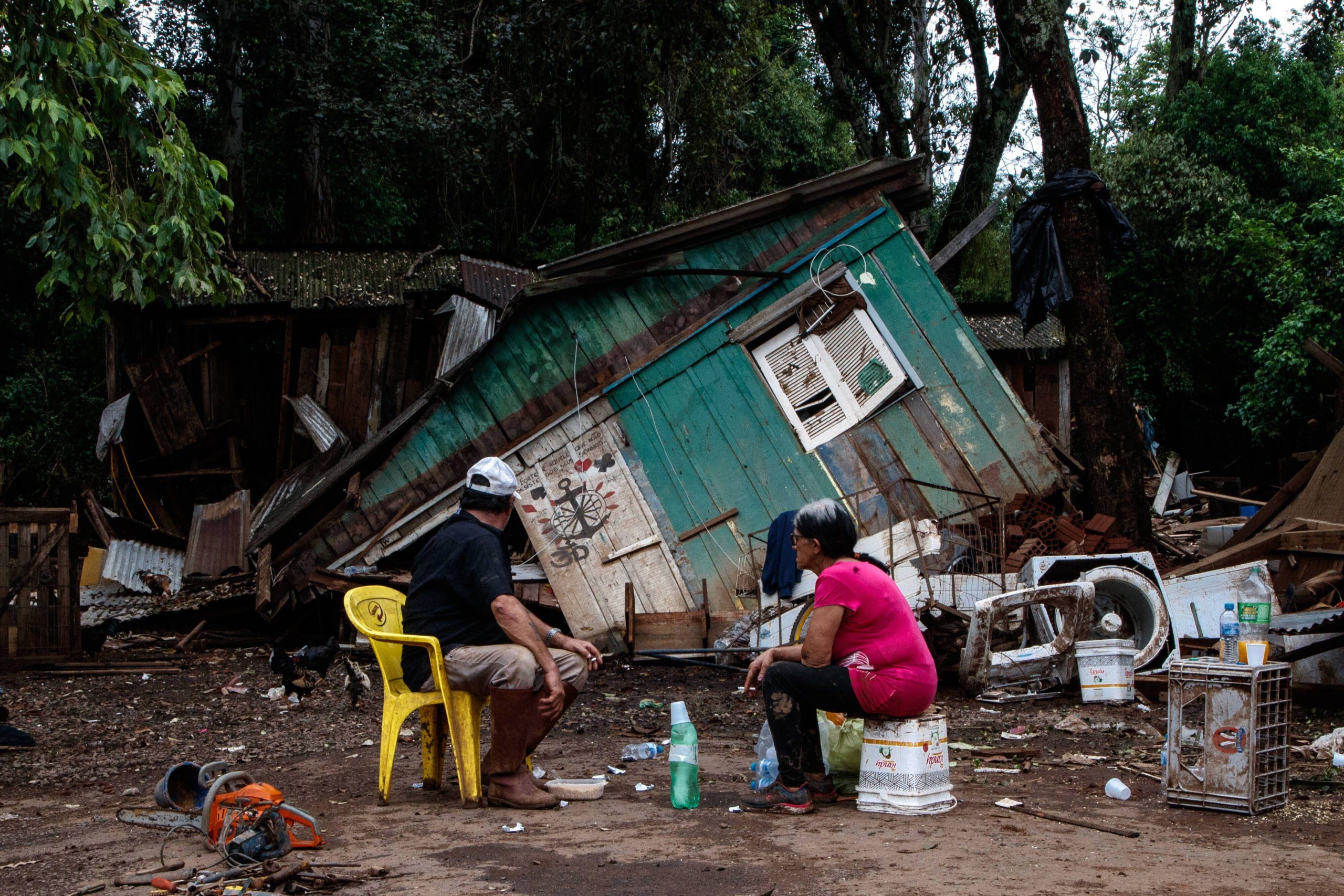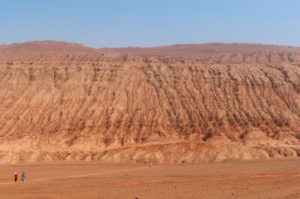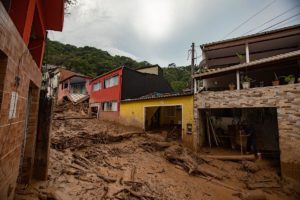What is COP28 and what does it mean for Latin America?
especiales

COP28 is this year’s crucial UN climate summit, the 28th Conference of the Parties (COP) to the UN Framework Convention on Climate Change (UNFCCC). The meeting will bring together the 198 signatories to the convention, which meet every year to discuss efforts to limit climate change and adapt to its effects. All UN member states plus the European Union are parties to the UNFCCC.
Since the Paris Agreement was adopted in 2015, climate COPs have focused on implementing it and making progress towards its aims of restricting global warming to “well below 2C” and “pursuing efforts” to keep it to 1.5C.
When and where will the COP be held?
Who is the president?
What will be discussed?
Why is COP28 controversial?
What are the key issues for Latin America and the Caribbean at COP28?
What progress have Latin America and the Caribbean made since COP27?
What about China’s role at COP28?
When and where will the COP be held?
COP28 will be held in the United Arab Emirates from 30 November to 12 December 2023. The venue for the summit is Expo City Dubai, a huge site in the south of the city, first built for the World Expo 2020.
Who is the president?
As announced in January, the COP28 president will be Sultan Ahmed Al Jaber, who is both the UAE’s Minister of Industry and Advanced Technology, and CEO of the Abu Dhabi National Oil Company. This appointment has attracted criticism from environmental groups, with many seeing these roles as conflicting.

Sultan Ahmed Al Jaber, the COP28 president, is also CEO of the Abu Dhabi National Oil Company (Image: Kamran Jebreili / Alamy)
What will be discussed?
A major focus of discussions will be the first Global Stocktake, which is scheduled to conclude at the summit in Dubai. This two-year process has involved collecting information on parties’ progress on climate action, identifying gaps, and thereby assessing the overall implementation of the Paris Agreement. COP28 is expected to adopt a resolution on what the stocktake shows, and the direction it indicates for climate action. This may include fresh pledges from governments.
RECOMMENDEDGreater ambition called for before pivotal COP28 climate talks
The Global Stocktake report, released in September, concluded that the world is not on track to meet the goals of the Paris Agreement. In early October, the UNFCCC Secretariat also released a synthesis report.
In July 2023, the COP28 president declared that the summit would focus on four “paradigm shifts”, concerning:
- fast-tracking the transition away from fossil fuels;
- transforming climate finance arrangements;
- the role of people and nature in climate action;
- and ensuring inclusivity at the summit, including for women, Indigenous peoples, local communities, youth and subnational actors.
How these aims can be achieved under a presidency that is heavily investing in fossil fuels and places severe restrictions on freedoms of speech and assembly remains a controversial sticking point.
One topic likely to attract attention at COP28 is progress on a fund for loss and damage, into which developed countries would pay to support developing countries in dealing with irrevocable losses caused by climate change. Agreement to establish such a fund was a hard-fought success for developing countries at last year’s COP27 summit in Sharm El-Sheikh, Egypt, but its efficacy will depend on how it functions and how much money it can attract. The agreement at COP27 was to establish the loss and damage fund within two years, so with this deadline still in the future, it may not be high on the agenda for all government negotiators. However, civil society groups and developing countries are likely to argue that progress on establishing the fund has been inadequate, and to call for greater urgency and redoubled efforts.
Why is COP28 controversial?
Many environmental groups and commentators have expressed concern that COP28 being hosted by the United Arab Emirates – a major fossil fuel producer – could result in weak outcomes, at a point when efforts to curb fossil fuel use need to be drastically increased if limiting warming to within 2C is to remain possible.
The appointment at COP28 president of Sultan Al Jaber, the CEO of one of the world’s largest oil companies that continues to invest heavily in extraction of the fossil fuel, has come under particular criticism. Greenpeace said it was “deeply alarmed” by the appointment, stating: “There is no place for the fossil fuel industry in the global climate negotiations.” Christian Aid said: “The conflict of interest is obvious”, and that “having an oil baron running the global climate talks is like putting an anti-vax conspiracy theorist in charge of the response to Covid-19.”
Al Jaber, for his part, has pitched himself as a figure who can keep fossil fuel companies at the table in negotiating a “phase down” in oil and gas use – language that remains contentious, with many countries and campaigners pushing for a firmer deadline for the “phase out” of fossil fuels. However, he has also made reaching commitments on tripling global renewable energy capacity by 2030 a central goal of the summit and his presidency.
Civil society groups from around the world have also raised concerns over the UAE’s restrictive laws around protest and freedom of expression, especially given that large public demonstrations are typically held in the host city during climate COPs. In early October, the United Kingdom sought assurances from the UAE at the United Nations over how the summit host will ensure freedom of expression and assembly around COP28.
What are the key issues for Latin America and the Caribbean at COP28?
Like countries across the global south, Latin America and the Caribbean will be looking principally for one thing at COP28: finance, and lots of it.
The issue of financial assistance from countries most responsible for climate change to support those facing the worst impacts and highest adaptation costs has dogged climate negotiations for almost two decades. Developed countries have consistently failed to match the pledge made in 2009 to provide US$100 billion per year in climate finance by 2020 to support climate action in developing countries. And even this is far less than what poorer countries will need to decarbonise their economies and adapt to the impacts of climate change, now estimated to be in the trillions of dollars per year.
RECOMMENDEDExplainer: Disasters in Latin America and the Caribbean, and how to reduce risks
Latin America and the Caribbean is the world’s second most disaster-prone region behind Asia, with each new climate-related event, including hurricanes, floods and droughts, incurring further loss and damage, exacerbating vulnerabilities, and hampering countries’ ability to adapt to climate change. The region is said to require an additional US$18.1 billion each year in finance for climate adaptation – a gap it will be seeking to plug at COP28.
The latest update from the Climate Finance Group of Latin America and the Caribbean (GFLAC) found that, in 2022, the region’s 20 most polluting countries received 15 times more income in carbon-intensive activities than in investments into combatting climate change. In their budgets, these countries have also collectively allocated 31 times more money towards carbon-intensive activities, such as oil and gas exploitation, than into combatting climate change and protecting biodiversity. In stretched economies often reliant on these activities for income, external financial support will be demanded to incentivise sustainable shifts.
Deforestation will once again be a key issue for the South American nations that share the Amazon, the world’s largest rainforest. The summit will see an assessment of progress towards the goal of reaching zero deforestation by 2030, launched at COP26 in 2021. But finance could, once more, be the sticking point, with further commitments sought from developed countries to bolster forest protection, as highlighted at October’s (slightly underwhelming) gathering of global rainforest nations in the Republic of Congo.

Aerial view of illegal deforestation on a soybean farm in the Brazilian Amazon in July 2022. COP28 will assess progress towards the goal of achieving zero deforestation by 2030, launched at COP26 in 2021. (Image: Alamy)
The recent Latin America and Caribbean Climate Week, held in Panama from 23-27 October, sought to build momentum ahead of COP28 and provided a snapshot of other key concerns that will be on the region’s agenda for the summit, including ocean climate action, nature-based solutions, and just energy transitions. These were listed in the final declaration of the summit signed by the region’s environment ministers.
What progress have Latin America and the Caribbean made since COP27?
The 12 months since COP27 in Egypt have underscored the challenges Latin America and the Caribbean face in a changing climate. Tightening economies and domestic political concerns have, in some countries, pushed climate down the agenda, but extreme weather events have repeatedly laid bare the region’s vulnerability and presented setbacks to action.
Droughts exacerbated by climate change have harmed ecosystems and economies in South America, including most recently in the Amazon; the recent category-five Hurricane Otis wrought vast damages on Mexico; severe floods have struck Brazil, Paraguay, Haiti and the Dominican Republic; thermometers hit 40C during South American winter; and Chile has battled devastating wildfires.

People sit in front of a cabin destroyed by floods in Estrela, Rio Grande do Sul state, Brazil, in September 2023. A series of extreme weather events in 2023 have once again laid bare Latin America’s vulnerability to climate change. (Image: Alamy)
But there has been some progress, and cause for tempered optimism. Following the return to power in January of Brazilian president Luiz Inácio Lula da Silva – who made a “rockstar” appearance at COP27, fresh from election victory – deforestation in the Brazilian Amazon in the first nine months of the year was already three times lower than the same period in 2022, making a promising start on one of his key campaign promises. In August, Lula also hosted a summit of Amazonian leaders aiming to boost cooperation on forest protection. In neighbouring Bolivia, however, concerns continue to grow over alarming forest loss, as it emerges as one of the region’s new frontiers of deforestation.
There has been positive progress towards decarbonisation. An October report by research group Zero Carbon Analytics highlighted that 2023 is set to be a record year for wind and solar power growth in Latin America, with a total of 25 gigawatts in new capacity projected to be added across the region, and 319 GW of projects in the pipeline. Brazil, it reports, has seen an average increase in solar capacity of 1 GW per month since July 2022.
RECOMMENDEDEcuador set to vote on banning oil projects in Yasuní National Park
Elsewhere, Colombia’s president Gustavo Petro, also keen to make good on environmental campaign pledges, signed his nation up to the Beyond Oil & Gas Alliance in August, as he seeks to wean his country off its dependence on oil revenues and promote renewable energy. Meanwhile, in Ecuador, a landmark referendum in August saw the public vote in favour of ending oil exploitation in the mega-biodiverse Yasuní National Park, though how the decision will be interpreted and enforced under incoming president Daniel Noboa remains to be seen.
From the Caribbean, Barbados prime minister Mia Mottley has continued to be a leading voice in the push to reform global financial institutions to better meet the climate needs of developing countries. She featured prominently at the Summit for a New Global Financing Pact, held in Paris in June 2023, highlighting how developing countries pay more to service their debts than they receive as climate finance. Mottley and other advocates continue to demand a restructuring of the World Bank and its affiliates, more concessional and grant-based financing, and debt cancellations for the least developed countries. These issues are almost certain to come up again at COP28.
What about China’s role at COP28?
Experts told China Dialogue that China will face “increasing pressure” at COP28 on issues such as enhancing its climate action, as well as its involvement in the “loss and damage” fund, designed to compensate global south countries for unavoidable climate change impacts.
The EU has recently called on China to commit to the Global Methane Pledge, launched at COP26 in 2021, as well as to the global goal of tripling renewable energy deployment by 2030, featured in the recent G20 New Delhi Leaders’ Declaration. The US has called on China to contribute to multilateral climate finance, something it has resisted thus far on the principle that as a developing country, which it defines itself as, it is not required to do so within the UN climate process – despite being the world’s second-largest economy and top emitter.

Xie Zhenhua and John Kerry, top climate diplomats of China and the US respectively, at the Glasgow climate negotiations in 2021. The relationship between these two will affect how well the two largest emitting countries work together at this year’s negotiations. (Image: Han Yan / Alamy)
China’s special climate envoy Xie Zhenhua declared at last year’s COP27 that China does not have the “responsibility” to contribute financially to loss and damage support. Chris Aylett, coordinator of the Environment and Society Centre at UK-based think-tank Chatham Housen, told China Dialogue that in lieu of paying into the loss and damage fund, China could contribute to the fund’s overarching aim, of enabling vulnerable countries to recover from climate impacts, by directing investment and technical cooperation under the Belt and Road Initiative towards climate-resilient development.
China is unlikely to sign up to the language of fossil fuel “phase out” that the EU and others will advocate for at COP28. Meanwhile, Xie Zhenhua has said that phasing out fossil fuels is “unrealistic”. Following the severe power outages the country experienced in 2021, estimated to have affected as much as 44% of industrial activity, Chinese energy policy is today organised around the principle of “establishing the new before destroying the old” – retiring fossil fuel infrastructure only when the new low-carbon system is fully in place.
As the world’s number one manufacturer of solar panels and wind turbines, China will play a key role in supporting efforts towards tripling global renewable energy capacity by 2030 – commitment to which is a key goal of the COP28 presidency. China’s wind and solar power is expected to reach its 1,200 GW target by 2025, five years earlier than planned, found a report by think-tank Global Energy Monitor.

















Add new comment